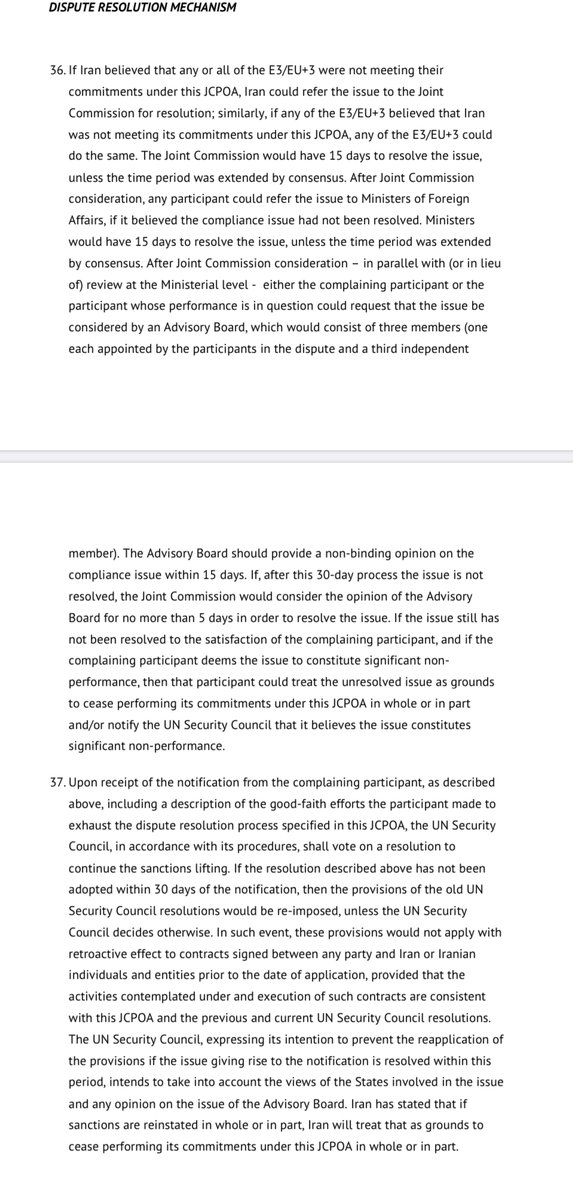
Despite the fact that Iran's nuclear program has rarely been off the front pages for better part of a decade, reporting and commentary around it continues to be riddled with basic misunderstandings and errors. A thread to help clarify a few things [1/5]:
2|"Iran is only weeks/months away from a nuclear weapon".
No. JCPOA put Iran's "breakout time" at 1 yr. This is time it would take to have enough fissile material for a weapon - not a complete nuke. US estimates are that this period is now 3-4 months; Israel pegs it at 6.
No. JCPOA put Iran's "breakout time" at 1 yr. This is time it would take to have enough fissile material for a weapon - not a complete nuke. US estimates are that this period is now 3-4 months; Israel pegs it at 6.
3| Something something "... nuclear weapons program".
There is no evidence of weapons-related work at present. Recent IAEA findings on radioactive traces relate to activities in late 90s/early 00s; even Trump admin noted that in here & now, no current weapons dimension:
There is no evidence of weapons-related work at present. Recent IAEA findings on radioactive traces relate to activities in late 90s/early 00s; even Trump admin noted that in here & now, no current weapons dimension:

4| "The JCPOA will soon expire".
This old chestnut relates to the fact that some nuclear restrictions are relaxed over time, which is correct. But key restrictions remain in place, and under max pressure the "sunsets" are taking place now instead of years down the line.
This old chestnut relates to the fact that some nuclear restrictions are relaxed over time, which is correct. But key restrictions remain in place, and under max pressure the "sunsets" are taking place now instead of years down the line.

5|5 "Iran is about to end inspections".
Incorrect! Tehran, per a parliamentary law passed after killing of a top nuclear scientist, is threatening to curb inspections under the Additional Protocol, implemented as part of JCPOA. This limits but does not end IAEA access.
Incorrect! Tehran, per a parliamentary law passed after killing of a top nuclear scientist, is threatening to curb inspections under the Additional Protocol, implemented as part of JCPOA. This limits but does not end IAEA access.
• • •
Missing some Tweet in this thread? You can try to
force a refresh



